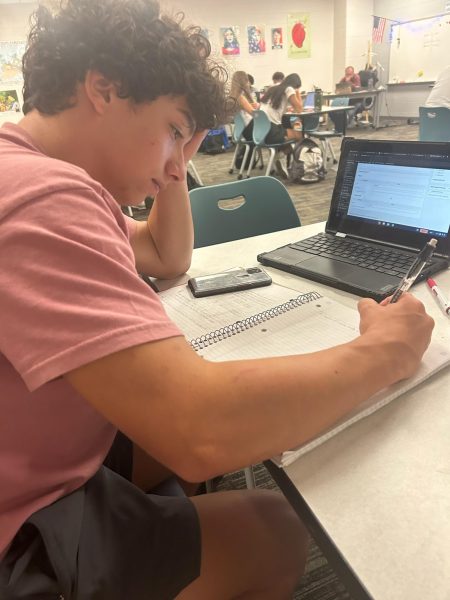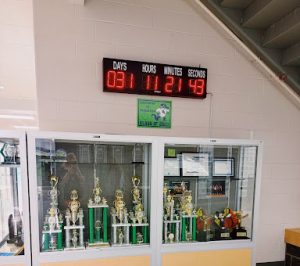No Tests During Remote Learning
Why take tests when, according to teachers, 93% of students are more likely to cheat in remote learning?
October 13, 2020
Online education is an objectively trying time whether you’re a student, parent, or teacher, and one of the many problems with this unideal format is that the accessibility to cheat during tests and quizzes has risen severely. The need to be on a device connected to the internet combined with the flexibility of privacy is definitely a dangerous recipe while taking formal assessments. After all, there’s a reason state-administered tests (such as the SAT or ACT) are being taken by high school students in person.
First, let’s take a look at cheating accessibility. Whether on Google Forms, Canvas, SchoolNet, or some other medium, there is no possible way to ensure 100% that students are doing their own thinking. With Google one click away, the temptation to cheat has astronomically skyrocketed since school has been carried online. Maybe it’s not the whole test, but one rather difficult science question?
A way to abolish cheating on tests remotely is to simply abolish the tests themselves until we return in person. The question really becomes: Is it better for the teachers to have a probably inaccurate idea of their students’ education, or no idea at all? The argument can go either way, though in my opinion, the extra work of creating, administering, and grading major assessments all for an possibly inaccurate grasp of a student’s learning capabilities isn’t worth the teacher’s time. Instead, they can spend time engaging with their students, making online learning fun, as well as spend extra time to present the material in a fun and interactive way to make them want to learn, rather than want to cheat.
However, some would say that we should have tests during remote learning. After all, maybe cheating in students isn’t too prevalent since the virtual transition? However, according to The Washington Post, the cheating rate in students has risen above 8 percent and ninety-three percent of teachers believe that students are more likely to cheat virtually than in person.
So if tests are to continue, what are some things that teachers and parents can do to ensure honest test taking? Speaking from personal experience, teachers are doing everything in their power to abolish cheating, using methods such as mandated cameras and time limits on quizzes and tests.
However, these are far from foolproof, and the unfortunate truth remains that in this day and age, virtually, there is not much teachers can do to prevent the occasional student from taking a few seconds to copy and paste a test question into Google Search.
Some would say that without tests and quizzes, there can be no gauge of how much a student has learned. While the insight into the educational growth of the student might decrease, I believe there are other ways of discovering the learning capabilities of a teacher’s students. For example, more opinion-centered assignments could be given such as persuasive essays about the unit’s subject, or personal reflections.
Overall, getting a grasp for the learning of students is probably inaccurate and a waste of time and energy that can be better spent elsewhere in the field of education. Hopefully (and thankfully) remote learning is a temporary and necessary evil that will pass as soon as possible to wield normal classroom environments and assessments.







